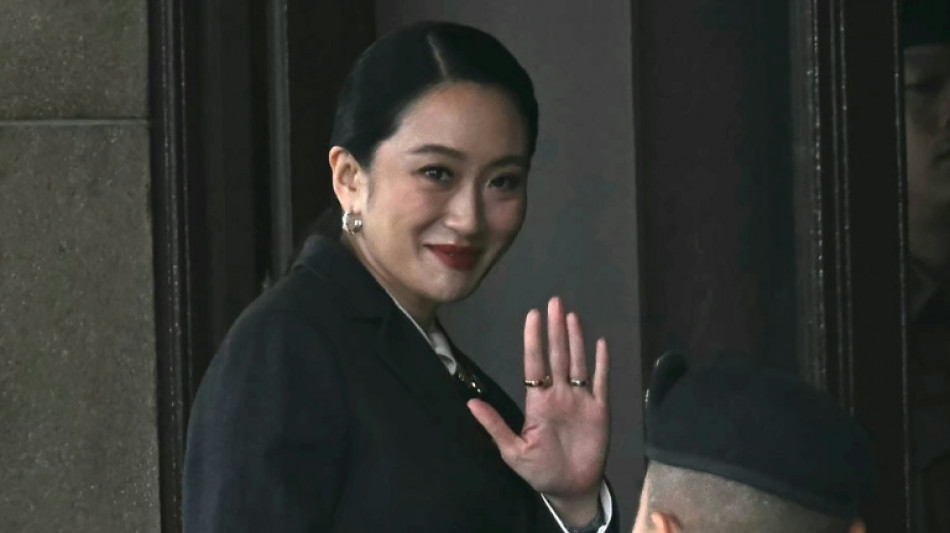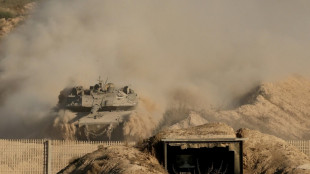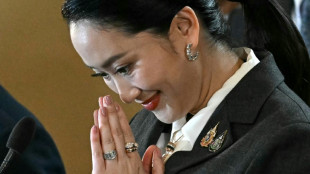

Thai court sacks PM over Cambodia phone call row
Thailand's Constitutional Court sacked prime minister Paetongtarn Shinawatra and her cabinet on Friday over her handling of the country's border row with Cambodia, throwing the kingdom into political turmoil.
Paetongtarn, daughter of billionaire ex-prime minister Thaksin Shinawatra, was suspended from office last month after being accused of failing to stand up for Thailand in a June call with powerful former Cambodian leader Hun Sen, which was leaked online.
The nine-judge panel ruled that she had not upheld the ethical standards required of a prime minister and removed her from office, pushing Thailand to the brink of political crisis, with no obvious candidate on hand to lead the fragile ruling coalition in parliament.
"Her actions have led to a loss of trust, prioritising personal interest over national interest, which fuelled public suspicion that she was siding with Cambodia and diminished confidence in her as PM among Thai citizens," the ruling read out by one of the judges said.
"The defendant has not upheld the ethical code of conduct. Her tenure as prime minister effectively ended with the suspension on July 1."
The ruling, which also dissolved Paetongtarn's cabinet, came a year after the same court ousted her predecessor as prime minister, Srettha Thavisin, in an unrelated ethics case.
- Contentious call -
The case centred on her call with Hun Sen, Cambodia's longtime ruler and father of its current premier, during which the pair discussed their respective countries' then-brewing row over their disputed border.
Paetongtarn addressed Hun Sen as "uncle" and referred to a Thai military commander as her "opponent", sparking a furious reaction in Thailand, where the armed forces hold huge sway.
Conservative lawmakers accused her of bending the knee to Cambodia and undermining the military, while Paetongtarn's main coalition partner walked out in protest, almost collapsing her government.
She clung on to power but a group of senators turned to the Constitutional Court, arguing she should be removed from office for breaching constitutional provisions requiring "evident integrity" and "ethical standards" from ministers. The court suspended her on July 1.
The 39-year-old leader and her Pheu Thai party argued that she did her best to act in her country's interests.
With no obvious candidate to take over as premier, the kingdom faces a period of deep political uncertainty.
Paetongtarn led an uneasy coalition with a group of smaller conservative parties who were long bitterly opposed to Pheu Thai.
Under the Thai constitution, only candidates nominated for prime minister at the last general election are eligible for the office.
Of the nine names put forward by the main parties in the 2023 poll, four would be ineligible for various reasons; two are unpalatable to Pheu Thai; one no longer has the support of his party; one could face a court case of his own; and one is reportedly in poor health.
A new election would seem like the obvious solution, but it is not clear whether the current acting Prime Minister Phumtham Wechayachai can call polls, or whether only a prime minister approved by parliament has the right to do so.
- Long-running tussle -
Thai politics has been driven for two decades by a battle between the conservative, pro-military, pro-royalist elite and the Shinawatra clan, whom they consider a threat to the kingdom's traditional social order.
Paetongtarn was the sixth prime minister from the political movement founded by her father to face judgment by the Constitutional Court.
Only one -- Thaksin himself -- survived. The rest were all thrown out for reasons varying from vote-buying to appearing on a cookery TV show.
Friday's proceedings came a week after a criminal court cleared Thaksin, 76, of royal insult charges in a case that could have seen him jailed for up to 15 years.
As well as causing a domestic furore, the controversial phone call -- released in full online by Hun Sen, to the Thai government's fury -- plunged relations between Thailand and Cambodia into turmoil.
In July, the tensions spiralled into the two sides' deadliest military clashes in decades, with more than 40 people killed and 300,000 forced to flee their homes along the border.
V.Schulte--BVZ



